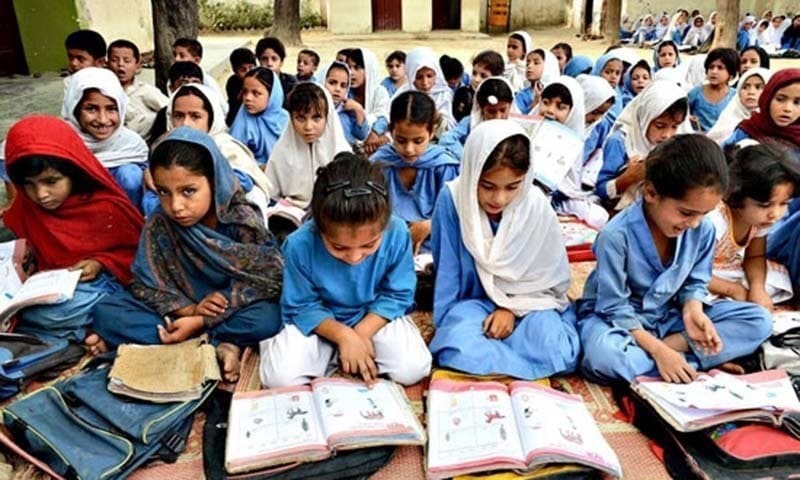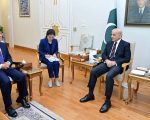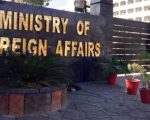In a world where darkness is all they know, hope remains the flickering light that refuses to fade. For visually impaired or blind individuals in Pakistan, life is a constant struggle in a society that has long marginalised them. The basic resources necessary to ease their daily challenges often feel like a distant dream. Every day, they face obstacles that stifle their ambitions and limit their potential, as invisible barriers to education, employment, and independence stand in their way.
For those few who dared to pursue college and higher education, hope was nearly nonexistent in Pakistan. Yet, change is slowly but surely taking place. Through increasing advocacy, innovative technologies, and community-driven efforts, the hope of empowering people with little or no vision in Pakistan grows stronger with each passing day. Vision Without Barriers (VWB), a U.S.-based non-profit led by a Pakistani-born blind visionary, has been at the forefront of this transformation. Their groundbreaking initiatives are creating pathways to higher education, empowering visually impaired and blind students to reach their full potential. With the support of local communities and learning institutions, VWB is turning the vision of an inclusive education system—where every student, regardless of ability, can thrive—into a reality.
Government College University (GCU) Lahore was the pioneer in establishing a high-tech lab in 2022, donated by VWB and specifically designed for visually impaired students, which has yielded excellent outcomes. Inspired by this success, Lahore College for Women University (LCWU) received a similar lab from VWB in 2024/25, ready to serve students. However, bureaucratic challenges typical in Pakistan have delayed its full implementation, preventing students from benefiting just yet.
A key part of VWB’s strategy is to equip universities like GCU and LCWU with resource centres. These centres provide assistive technology, including screen-reading software and other specialised tools, enabling students to access textbooks, online libraries, and research materials with ease and confidence, thereby allowing them to explore a wide range of educational resources.
Another challenge VWB addresses is the lack of teacher training in inclusive education. Through workshops and seminars, VWB helps lecturers adopt non-visual teaching methods, including the use of descriptive language and alternative forms of assessment. A well-trained teacher can create more inclusive classrooms, enabling visually impaired students to share and learn alongside their peers.
To address the challenges faced outside the classroom, VWB’s vision goes far beyond simply installing ramps or providing basic Braille materials; it aims to dismantle the long-standing misconception that visually impaired students cannot succeed at university and beyond. In addition to special accommodations supplied by educational institutions, a genuine chance for success ultimately depends on a strong community support system, actively driven by the family. Strengthening higher education for visually impaired students not only transforms lives but also enriches society as a whole. After all, the true strength of any community is measured by how it supports its most vulnerable members.
Aligned with its mission for an equal-opportunity world, VWB empowers students to succeed in daily life activities. Key initiatives include providing VWB’s locally developed, world-class canes, orientation and mobility (O&M) training, independent living skills, and assistive technology—all designed to enhance their independence, confidence, and overall quality of life. This will also help shift society’s perspective, understanding that these individuals don’t seek assistance for everything; they approach things differently and can integrate as individuals with different abilities.
Academic work alone, however, does not capture the whole university experience. To help visually impaired students feel truly included, VWB partners with student societies and clubs, creating opportunities for them to participate in cultural activities, acting, music, debates, martial arts, technology, sports, and more. One remarkable example is blind cricket, which has gained popularity in Pakistan. These activities not only provide students with fun and socialising opportunities but also challenge public perceptions about the abilities of blind individuals.
Not all students pursue traditional academic routes. Some have a passion for technical or business fields. In response, VWB plans to offer vocational training programs in areas like digital marketing, coding, and crafts—skills that are accessible to visually impaired individuals and can help them earn a living and contribute to their communities.
To celebrate success, VWB’s recognition schemes for visually impaired students excelling in their studies will provide a significant psychological boost and incentive. Scholarships, graduation awards, and public recognition, including media coverage, will help raise awareness and send a strong social message: disability should never be an obstacle to education or career success.
In a country like Pakistan, where job opportunities are scarce, one of the most significant challenges for visually impaired students is navigating the transition from university to the workforce. To address this, VWB is committed to organising specialised job fairs for visually impaired graduates. These events will directly connect talented students with potential employers, offering invaluable networking opportunities. They will also help shift perceptions and demonstrate that disability is not a barrier, but a strength, in the workforce.
One of the most promising outcomes of VWB’s work is the “ripple effect.” These early milestones represent a significant breakthrough with the potential to inspire similar initiatives at universities across Pakistan. As institutions recognise the benefits, such as increased enrollment, improved student performance, and a more positive campus culture, they will be motivated to adopt more inclusive policies.
Sharing success stories and proven techniques will encourage other universities to reassess their support systems, prompting a positive shift in both local and national education guidelines. We’ve just scratched the surface of a much larger task. Pakistan’s vast population limits VWB’s reach, but its impact is growing, with increasing interest from charities and government agencies. A practical model for uplifting visually impaired students fosters collaboration and advocacy for stronger disability-rights legislation.
Moving forward, the road to inclusive higher education in Pakistan is promising, but it requires the collaboration of policymakers, universities, businesses, and communities. By investing in infrastructure, providing incentives, valuing diversity, and supporting organisations like VWB, Pakistan can create an inclusive academic environment that meets the needs of visually impaired students, empowering them to reach their full potential and paving the way for a more just and equitable future.














